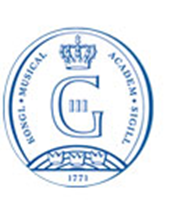The Society for Eighteenth-Century Music
Ninth Biennial Conference: Global Intersections in the Music of the 18th Century
August 6–7 and 13–14, 2021 (11am–3pm Eastern)
Virtual Conference, in collaboration with the
Royal Swedish Academy of Music
Friday, August 6Day I(8 AM-12 PM PDT, 9 AM-1 PM MDT, 10 AM-2 PM CDT, 11 AM-3 PM EDT, 14-20 GMT, 17-21 CEST for all days; times herein are according to PDT) |
|
| 8:00-8:30 | Preliminaries/Introductions: Pia Bygdeus (Royal Swedish Academy of Music; Guido Olivieri/Bertil van Boer (Society for Eighteenth-Century Music) |
8:30-10:00 |
Session I: 18th Century Music on Baltic Shores Chair: Pia Bygdeus (Royal Swedish Academy of Music) Anna Parkitna (Kiel), “Peripheries of Enlightenment: Operatic Life in Stanislavian Warsaw (1765-1794) as a Reflection of Opera’s Universality” Māra Grudule (University of Latvia), “The Peasant at the Piano, or Did the Duchess of Courland (Dorothea von Biron, 1761–1821) Sing in Latvian? Kimary Fick (Oregon State University), “Landscapes of Solitude: Music Publication and the Private Performance of Amateurs during the North German Enlightenment” |
|
10:30-12:30 |
Session II: Opera, Theatre, and Audiences in the 18th Century Chair: Laurel Zeiss (Baylor University) Austin Glatthorn (Durham University), “Letters from the German Stage: Correspondence, Mobility, and the Emergence of a Common Operatic Repertoire, c.1800” Bella Brover-Lubovsky (Jerusalem Academy of Music and Dance), “Armida’s Magic Gardens in the ‘Northern Palmira’ or an Inauguration of the Hermitage Theatre” Louise K. Stein (University of Michigan) “An Opera Producer’s Legacy in the Americas” |
Saturday, August 7Day II |
|
|
8:00-10:00 |
Session III: 18th Century Genres and Repertoire Chair: Guido Olivieri (University of Texas Austin) John D. Wilson (Austrian Academy of Sciences), “Italian Arias for Magdalena—or for Luigi? An odd Repertoire of Early Vocal Works by Beethoven, Andreas Romberg, and Anton Reicha” R. Todd Rober (Kutztown University), “Court Society and the Hunt: Liminal Intersections in Two Characteristic Sinfonias of Gottlob Harrer (1703–1755)” Holly J. Roberts (University of Oregon), “Neoplatonic Mysticism and Affective Piety in Quirino Colombani’s Il martirio de Santa Cecilia” Halvor Hosar (University of Auckland), “Johann Baptist Wanhal’s Cantata Masses and Morphological Construction in the Missa Solemnis in the Age of Haydn.” |
|
10:30-12:00 |
Session IV: Pedagogical and Cultural Rhetoric and Institutions Chair: Mattias Lundberg (University of Uppsala) Adriana De Feo (University of Vienna), “The Intellectual Background of a Librettist: Apostolo Zeno’s Drammi and the Rhetoric of Passions” Erik Wallrup (Södertörn University, Stockholm), “An Academy of Academies: The Cultural Transfer of the ‘Academy of Music’ to Sweden” Faith S. Lanam (University of California, Santa Cruz), “A Neapolitan Conservatory in New Spain: A Contextual Analysis of the Contributions of Italian Pedagogues to a Mexican Girls School” |
Friday, August 13Day III |
|
|
8:00-10:00 |
Session V: Slavery, Satire, and 18th Century Views Chair: Melanie Lowe (Vanderbilt University) Pierpaolo Polzonetti (University of California, Davis), “African-American Presence and Anti-Slavery Ideology in Mozart’ Vienna” Magnus Tessing Schneider (Stockholm University), “Which Savages? Ranieri Calzabigi’s Amiti e Ontario o I selvaggi (Žleby, 1772)” Callum Blackmore (Columbia University), “Slavery, Celebrity, and the Creolization of French Opera in Colonial Saint-Domingue” Beverly Wilcox (California State University, Sacramento), “Ducharger’s Russian Traveler: Stalkoff, gentilhomme russe en France and the Problem of Extracting Performance Information from Satire” |
|
10:30-12:30 |
Session VI: 18th Century in the British Isles Chair: Rebecca Geoffroy-Schwinden (University of North Texas) Christopher Parton (Princeton University), “Legitimating Handel’s Music in Earl-Republic Boston Print Media” Ashley Greathouse (College-Conservatory of Music, University of Cincinnati), “Harmonious Concerts and Double-Refined Sugar: Luxury Goods in the English Pleasure Garden” Alison DeSimone (University of Missouri Kansas City), “Contrived with So Great a Variety: Handel and Musical Miscellany in Early Eighteenth-Century London” Sarah Waltz (University of the Pacific), “William Herschel’s ‘Gravitational’ Theory of Music” |
Saturday, August 14Day IV |
|
|
8:00-10:00 |
Session VII: Aspects of Theatre, Memory, and Medicine Chair: Paul Corneilson (C. P. E. Bach: The Complete Works—The Packard Humanities Institute) Nicola Usula (Faculté des Lettres, Université de Fribourg and ICCMU, Universidad Complutense de Madrid), “Demofoonte Renewed: Pietro Vincenzo Chiocetti’s Pasticcio in 1735 Genoa” Bruce Alan Brown (University of Southern California), “The Gargarismi of Lazzaro Paoli: Singing Pharmacology, and Castration in Eighteenth-Century Tuscany” Julia Doe (Columbia University), “‘Un mal qui fait du bien’: Opera and Smallpox Inoculation in Enlightenment France” Margaret Butler (University of Wisconsin-Madison), “Constructing the Eighteenth-Century Diva: Caterina Gabrielli and the Persistence of Memory” |
|
10:30-12:30 |
Session VIII: Cultural Interchanges in 18th Century Music Chair: Alison DeSimone (University of Missouri Kansas City) Morton Wan (Cornell University), “Technology, Musical Alphabetism, and Intercultural Encounters: The Keyboard Interface between China and the West in the Eighteenth Century” Laurel Zeiss (Baylor University), ““When Mozart Restricts: The Birdcatcher, The Moor, and the Man of Reason” Karina Valnumsen Hansen (Norwegian University of Science and Technology), “Ecclesiastical Models in Mozart’s Second Thamos Chorus “Gottheit, über alle mächtig” Paul Corneilson (C. P. E. Bach: The Complete Works—The Packard Humanities Institute), “Hamburg celebrating Gustav: C. P. E. Bach’s Spiega, Ammonia fortunata Wq 216” |
.jpg)

.jpg)